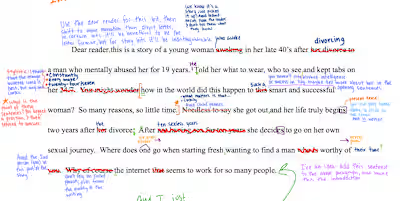Pride in Death
Like this project
Posted Oct 26, 2023
This is a poetry analysis essay of "Hurt Hawks" by Robinson Jeffers. I enjoy writing these essays, and I'm happy to help others write theirs!
Likes
0
Views
2
Tags
Arrogant people are everywhere. That attitude can come from wealth, status, or simple unkindness. An arrogant attitude is a difficult thing to overcome, and it can bring negative situations your way. It’s easy to inflate one’s ego, but it’s just as easy to have all power ripped away. People often maintain their arrogant attitude even after a ‘fall from grace.’ Understanding this near universal rule of life, narrative poet Robinson Jeffers composed a short poem that encapsulates this. In a two part poem, published in 1928, he tells the story of an injured hawk who has fallen an unknown distance to the ground. With a body too battered to move, the animal sat prone on deaths door for an untold number of days. In this poem, Jeffers uses meaningful language, literary devices, and symbolism to argue that though power and agency are easily ripped away, pride and hubris are more difficult to escape, but humility and acceptance bring peace.
The first line of the poem establishes the hawk’s former glory. Describing his broken wings as a “broken pillar” (Jeffers, line 1), Jeffers uses symbolic imagery to show the hawk’s power. Pillars are steadfast, and often used to support the weight of great structures above them. From the grand Doric columns of the Athenian Parthenon, to a load bearing beam within a New York skyscraper, the iconic imagery of a pillar shows the strength the hawk once had. As strong as a pillar once was, once that support is broken it’s power is lost. A structure can’t be supported by a broken pillar, just as a hawk can’t be held aloft by a broken wing. The hawk’s fragile power is easily lost, which leaves him weak and without control of his destiny.
The hawk is “no more to use the sky forever” (Jeffers, line 3), but his former use of the sky symbolizes the power he had. He didn’t “fly through the sky,” nor did the sky “hold him aloft.” These statements imply that the sky has the power, but instead the infinite sky was wielded by the small winged creature. The domination of the sky displays the hawk’s world of possibility, and his control over his life. Having lost his powerful wing, the hawk is “(to) live with famine and Pain a few days” (Jeffers, lines 3-4). Though he once commanded the sky, one misfortune has taken away all of his power; he “lives” in suffering without any recourse. That word is key because it displays the hawk’s loss of agency, and his new lack of power against the world.
The line “He stands under the oak bush” (Jeffers, line 6), juxtaposes his confidence against his fear. Though he is injured, and after days of agony, the hawk still stands. The imagery is similar to the pillar, and shows that he hasn’t lost his confidence. Though the main source of his power is lost, he still has power in his mind. He stands seeking shelter under an oak bush, and the hiding shows that much of his power is gone. Regardless of his arrogance, and outside of his natural habitat, the cocky bird still hides from able predators. Without his old power, he confidently hides away from the world, and prevents nature from taking it’s course.
The hiding shows symbolic escapism, and illustrates the hawk’s wish to escape his current situation. Sadly, his only escape comes at night when he “flies in a dream,” (Jeffers, line 8) but “the dawns ruin it.” His agency has been taken away from him, and nothing will free him. He ruminates on the control he’s lost, and that arrogance holds his “lame feet” (Jeffers, line 7) standing under the bush. In the following line, Jeffers uses chiasmus to show that the hawk’s pain is worse because he is strong: “he is strong and pain is worse to the strong, incapacity is worse” (Jeffers, line 9). Dreaming of his previous life and power, the hawk maintains strength in his mind. He sits prone under a bush on the ground, but won’t act like he’s lost his power at all. Continuing to look at life through his elevated lens, he can’t grapple with reality to discover a way out. Without the humility to admit defeat, the pain can only grow worse.
Even having been banished from the sky, nothing “but death the redeemer will humble that head” (Jeffers, line 11). Though he’s helpless and miserable on the ground, nothing can humble him—save for death itself. Without any hope to return to his former life, the hawk holds onto what power he can. He insists on maintaining his power, because he can’t comprehend that he’s lost it; that insistence comes at his own expense, because “the wild god of the world is sometimes merciful to those that ask for mercy, not often to the arrogant” (Jeffers, lines 13-14). In order to receive help, the hawk must willingly supplicate himself; he must overcome the arrogance that came from a world he controlled.
The second stanza of the poem is separated from the first by the roman numeral “II.” The presence of the “II” shows that the perspective has changed, and this is supported by the first words of the second stanza: “I’d sooner, except the penalties, kill a man than a hawk” (Jeffers, line 18). The subject changes from the hawk to the narrator of the poem, and this shift of subject offers a new viewpoint. Jeffers explains that, “the great retail Had nothing left but unable misery” (Jeffers, lines 18-19). Confirming that the hawk’s shattered body has no strength left, it’s clear that the only thing that kept it going was its resolve.
After finding the hawk, Jefferson cared for him for six weeks. Even with a body shattered broken beyond repair, the strong bird decided to leave his new home. In leaving the only safety he’s known for months, it’s clear that the hawk is strong of mind and willing to fight for himself. Though he is strong, he relies on another being to survive. Once that is made clear to him, he returns in the evening “asking for death” (Jeffers, lines 23-24). His arrogance once prevented him from understanding his life, but he is no longer blind to it. He understands his situation, and accepts what must happen. “Still eyed with the old implacable arrogance” (Jeffers, lines 25-26) that once controlled him, the hawk takes control for the final time in death.
The intention of “Hurt Hawks” is to display that it’s easy to lose agency, but difficult to escape the arrogance that comes with it; in understanding a new situation, it’s possible to overcome that hubris to achieve peace. Throughout the poem Jeffers used symbols, such as the oak-bush or the pillar, to covertly display the hawk’s strength. Later he shows how he held onto that strength through a terrible time, but it made accepting his new life more difficult. At the end of the poem, “Still eyed with the old implacable arrogance” (Jeffers, lines 25-26) that once controlled him, the hawk took control for the final time in death.
Jeffers, Robinson. “Hurt Hawks.” 1928. Poetry Foundation. https://www.poetryfoundation.org/poems/51675/hurt-hawks. Accessed 09/18/23



